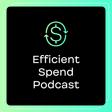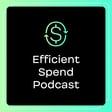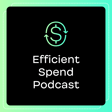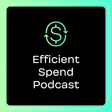
Strategic Decision Making, The Role of the Data Scientist, and Building Uber | Sundar Swaminathan
SUBSCRIBE TO LEARN FROM PAID MARKETING EXPERTS 🔔
The Efficient Spend Podcast helps start-ups turn media spend into revenue. Learn how the world's top marketers manage their media mix to drive growth!
In this episode of The Efficient Spend Podcast, Sundar Swaminathan, Head of Data at Bounce and former Uber data science leader, explores the intersection of data analytics, AI, and growth marketing. Sundar shares insights from managing $1B in ad spend at Uber, the role of brand awareness in scaling businesses, and the evolving skill set for modern analysts. He also discusses decision-making frameworks, the future of AI-driven analytics, and strategies for optimizing media budgets effectively.
About the Host: Paul is a paid marketing leader with over a decade of experience optimizing marketing spend at venture-backed startups. He's driven $250M + in revenue through paid media and is passionate about helping startups deploy marketing dollars to drive growth.
About the Guest: Sundar Swaminathan is a data and marketing leader with over 15 years of experience in B2C growth, analytics, and data science. As the Head of Data at Bounce, a commoditized business in luggage storage, and former Uber data science leader, he has analyzed $1B in marketing spend, built high-impact analytics teams, and now helps startups scale through data-driven decision-making.
VISIT OUR WEBSITE: https://www.efficientspend.com/
CONNECT WITH PAUL: https://www.linkedin.com/in/paulkovalski/
CONNECT WITH SUNDAR: https://www.linkedin.com/in/sswamina3/
EPISODE LINKS:
https://bounce.com/blog
https://experimental.substack.com/
https://www.marketingevolution.com/marketing-essentials/data-driven-marketing



